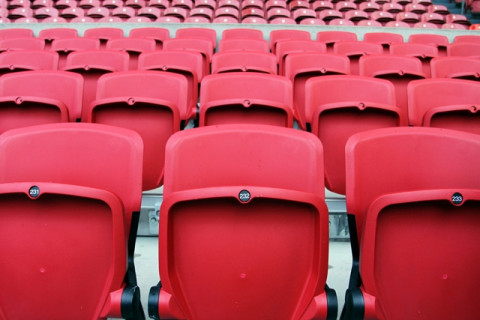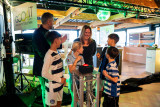Extra information
The Amsterdam ArenA (one of the most sustainable stadiums in the world) replaces in the run-up to the Euro 2020 all stadium seats and would like to do so in a socially responsible way.
It involves approximately 48,000 hard plastic chairs on metal frames and 4 to 5,000 more luxurious upholstered chairs of corporate boxes and grandstands. Along with Better Future Factory, an innovation and design firm specializing in recycling of plastic waste flows, the HvA will examine with the ArenA in what way the seats can be reused preserving the highest value as possible.
Amsterdam ArenA and HvA will explore one of the scenarios in collaboration with 3D4Makers, a company that works with (recycled) plastic filament for printers using Fused Deposition Modelling. The question is how the material of the stadium seats behaves with these processing techniques considering the impurity of the material.
In addition, this project investigates the technical and aesthetic properties of the processed material in order to determine what can be made for this type of products.
What is the goal of the project?
3D printing is a paradigm change in how we are going to make products. The HvA and the Amsterdam ArenA are studying how local residual products such as old stadium seats plastic waste) can be used as raw materials for new products which can be manufactured using 3D printing.
What is the result of the project?
Insight into techniques, processes and possible business case on how the waste can be collected and processed into raw material for the manufacture of new products using 3D printing.
Who initiated the project and which organizations are involved?
AUAS (HvA), Amsterdam Arena, Better Future Factory, 3D4Makers
What is the next step?
This project wants to exam the existing tools that are suitable for making a comparison of the scenarios by measuring the ecological, social and economic impact and will provide knowledge for HvA and Better Future Factory on how the ecological, social and economic impact of reuse scenarios can be assessed.
Through hands-on exploratory research they will research the composition and homogeneity of the material and different processing tests will be carried out at 3D4Makers (3D printing) and the Hogeschool van Amsterdam (presses).
What can other cities learn from your project?
At present, there are several scenarios to provide a next life the seats: redistribution, remanufacturing and recycling. Because of quality differences in quality of the seats and differences in cost within the scenarios a combination of scenarios is required to reuse the material as much as possible in meaningful way.




